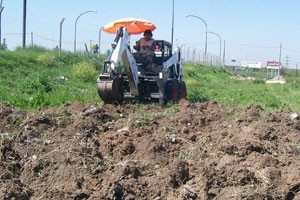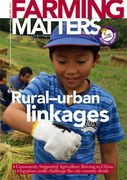Biraj Patnaik argues that the WTO must allow developing countries to address their people’s food security needs. He outlines the fundamental changes needed to reverse this injustice.
How much support can developing countries provide to their farmers for domestic food security without being accused of distorting international trade? This question is at the heart of a heated conflict in the World Trade Organization (WTO).
India proposes to spend less than US$25 per person per year under its National Food Security Act, aiming to stock food from local farmers for the food security needs of its population during hard times. Following the National Food Security Act of 2013, the central government would provide rice, wheat, maize and traditional grains like sorghum, pearl millet and finger millet, through the public distribution system. But the USA and other countries say that this is ‘a subsidy in disguise’ that should not be allowed, claiming it goes against WTO rules agreed in the 1994 Uruguay Round.
The US itself spends US$1608 per person per year under its Supplementary Nutrition Assistance Program, which remains unchallenged in the WTO. Now that India has the means and the urgency to address its people’s food security needs, they would not be not allowed to do so? This hypocrisy highlights the WTO bias in favour of developed countries.
The developing world presented a comprehensive proposal for a progressive overhaul of the Agreement on Agriculture. But the USA, the EU and others arm-twisted developing countries into accepting a temporary ‘peace clause’ allowing them to continue with food security programmes ‘until a permanent solution is found’.
This injustice has to be reversed. Developing countries must unite and call for fundamental changes in international trade rules for food and agriculture. Civil society groups meeting in Tunis in March 2015 agreed on the following proposals.
- First, all countries should be allowed to implement comprehensive support programmes to develop sustainable, local food production systems for domestic food security.
- Second, no country should be allowed to export subsidised food that may have negative impacts on domestic food production of any other country.
- Third, countries should be allowed to use volume and price-related tools such as tariffs and (or ‘special safeguard mechanisms’) to counter import surges and falling commodity prices, and to protect the interests of their domestic producers.
- Fourth, developing countries should be allowed greater flexibility to impose tariffs on products designated ‘special products’ that impact their food security, rural development and livelihood security needs.
Anything short of these steps would enhance the inequities enshrined in the WTO, which work against small scale family farmers worldwide, and have deepened the agrarian crisis in the developing world in the last three decades. If this struggle is won, domestic food security and food sovereignty considerations would finally get precedence over the dictates of international trade.
Biraj Patnaik
Biraj Patnaik is the Principal Adviser to the Commissioners of the Supreme Court in India in the Right to Food case. Views expressed here are personal.
Email: biraj.patnaik@gmail.com


